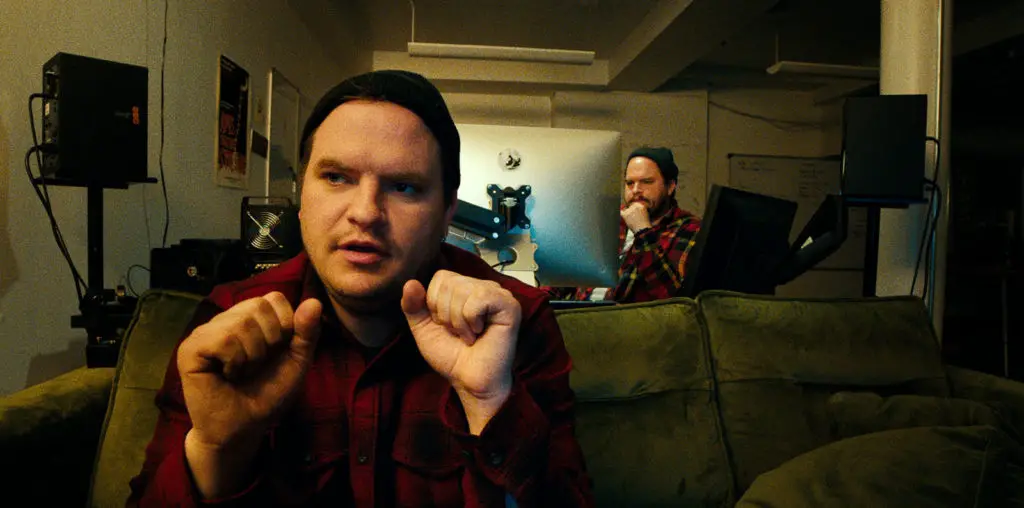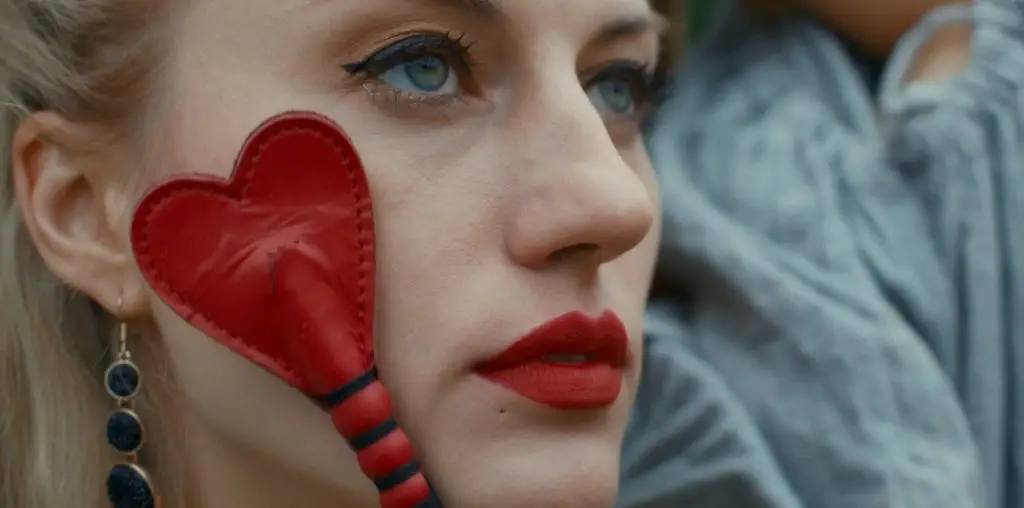
When Kevin Smith announced his intentions of making a sequel to his debut classic Clerks, the flags went up. Was he gun-shy due to the lackluster performance of Jersey Girl? Was this his way of re-grouping, by climbing back into the View Askewniverse he had so recently, and publicly, shut the book on? Would he really risk tarnishing the legacy of the first film because he was too afraid of doing something new? The questions just kept coming, each one more derogatory towards the state of Smith as filmmaker, each one with less and less faith in his abilities (if you felt he had any to begin with). And here we are with the release of Clerks II, and it’s time to answer those questions.
Ten years after the events from the first film, Dante (Brian O’Halloran) and Randal (Jeff Anderson) find themselves working at a Mooby’s fast food restaurant (due to the fact that the Quick Stop had burned down). Instead of coming into the middle of their dreary lives a la Clerks, we’re coming in on the eve of a major change in Dante’s life. His fiance, Emma (Jen Schwalbach Smith), is moving him down to Florida so he can run her father’s car wash business, and this is his last day at Mooby’s with Randal, boss Becky (Rosario Dawson) and innocent, Transformer-loving Elias (Trevor Fehrman). Add to the mix a recently rehab’ed and spiritually reborn Jay and Silent Bob, and the stage is set for yet another fateful day in the lives of Randal and Dante.
What strikes you off the bat is how visually-rich the film is. Despite numerous other films with varying DP’s, it’s the return to the DP that started it all, Dave Klein, that garners the best results. Here we don’t have a visual style being forced on a self-admitted visually-stunted director, but rather a style that has been organically pulled out of said director. It feels like what Smith is writing about and what he’s seeing in his head are finally on the screen.
The next aspect of note is the general tone. There’s something about seeing Dante and Randal back at their old games that is comforting, and the film, while dipping into the heady subjects of one’s future, lost potential and relationships (both friendly and otherwise), also has a hearty amount of fun within it. And when I say fun, I don’t just mean Kevin’s normally witty, vulgar banter, I mean a bunch of happy moments. There’s a musical number about halfway through that elicits grins and doesn’t stop until you’re smiling wide. But the happiness doesn’t sustain without the strong undercurrent of heart that appears when you look beyond the surface.
When Randal is debating the merits of Star Wars over The Lord of the Rings, he isn’t just defending movies he digs, he’s defending a cornerstone of his childhood. When Dante admits his fear of getting married due to an inability to dance, he’s showing how outside perception can possibly off-color his greatest day. Both characters are human, and this time through we get to really see and understand that, which is a testament to the strong writing but also to the performances of the cast.
Jeff Anderson makes you finally understand why Randal and Dante are best friends, because he allows you to see his loyalty, his clarity and overall his love. At the end of the day, Randal may be the only guy who gets exactly what is going on, but at the same time he’s just as caught up in events as everyone else. O’Halloran’s Dante is exactly as you’d expect him to be after the first flick, more interested in making surface moves of improvement in his life than actual improvement. Getting married and moving out of Jersey may seem like he’s finally doing something, but really it’s just dropping the same rat in a different cage… when the rat digs the cage he’s in.
Newcomers to the Clerks universe Trevor Fehrman and Rosario Dawson acquit themselves nicely to the Dante-Randal dynamic (because, let’s face it, it’s their world). Elias is that home-schooled innocent that has just enough of a deranged streak underneath it all to make you stop and go “uh huh, that’s how they start before they’re on the roof of some tower taking sniper shots” while Dawson’s Becky actually helps you believe that someone as gorgeous and vibrant in life is not only working at a fast food restaurant, but also into a schlub like Dante. Even Smith’s wife Jen, playing Dante’s fiance Emma, shines in her moments near the end of the film when we’re reminded of the fact that, despite our rooting for Dante to change his life and escape the next trap he’s set for himself, there’s another person that truly cared for him and by no fault of her own believed all his words about wanting that new life.
The film ends on an ambiguous note that I can only compare to the end of The Graduate, in the sense that you have two people who have finally made that drastic decision and acted on it, and you get to see the realization of the moment after sink in. Dante and Randal by film’s end are exactly where they want to be in life… or are they? Did they finally grow up, or fall backwards in the guise of growth? Could you ask the same of Kevin Smith by re-visiting the Clerks world to begin with? The answer is, at the end of the day, with the audience.
Ultimately, Smith finally achieves that perfect balance between humor and heart that he’s been dancing towards with all his films. The film is akin to that last day of high school or college, when you know one chapter is closing and there’s an excitement and happiness in that, but there’s also the undertone and knowledge that the chapters yet to come are not necessarily defined as you’d like them, if at all. You get to see old friends one last time, and then everyone moves on in some form or another.
So back to the opening questions summed up in one general one: was Clerks II simply a beaten filmmaker retreating to what he was most comfortable with in the face of disappointment? No. If the film had nothing to say and was just about trotting out the same characters for us to giggle at, then yes, but Smith’s film is as much a statement on life in your 30’s and unrealized potential as it is an allegory for the director’s own career and as such, is a necessary piece of the filmmaking puzzle the man continues to build. If Clerks II tarnishes the reputation of the first one, it’s only because we’re able to see how much better Smith’s writing has become over the years.

